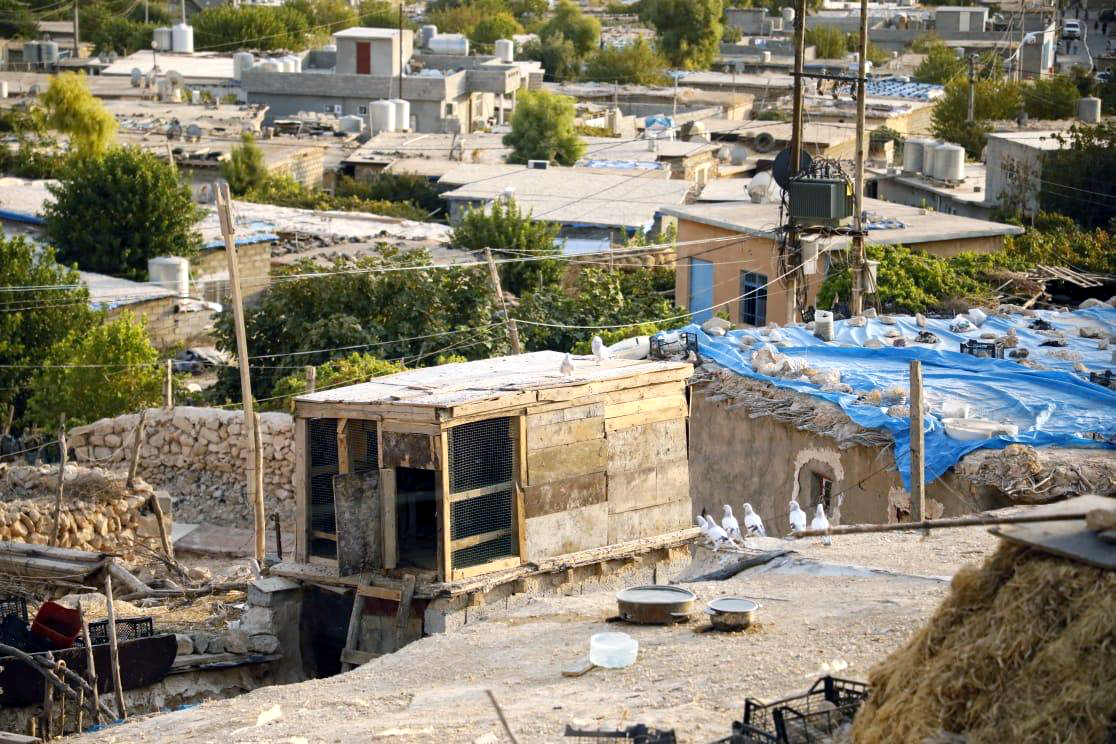The Human Rights Organization (HRW) has accused authorities in the Kurdistan Region of Iraq of imposing restrictions on the movement of most residents of Makhmour refugee camp housing Turkish Kurds, indicating that “two women miscarried” as they could not get to a hospital after being stopped at checkpoints manned by Kurdistan Regional Government (KRG) security forces.
In a report it published on Wednesday, November 27, HRW said that “the restrictions came after unknown assailants suspected of belonging to the Kurdistan Workers’ Party (PKK), an armed group engaged in a decades-long conflict with Turkey, killed a Turkish diplomat in the nearby city of Erbil on July 17.
HRW pointed out that “KRG security forces, known as Asayish, arrested several suspects and imposed the restrictions, seemingly because of perceived PKK support among some residents”, adding that “many camp residents have lost their jobs and had difficulties getting health care.”
Sarah Leah Whitson, Middle East director at Human Rights Watch criticized the measures stressing that “authorities can’t just punish everyone in a camp because some people may be sympathetic to the PKK when there’s no evidence they committed a crime.”
Makhmour refugee camp, 60 kilometers southwest of Erbil, is home to at least 12,000 Turkish Kurds, most fled southeast Turkey from 1993 to 1994 during the Turkish military’s conflict with the PKK. The camp was officially registered by Iraqi authorities and UNHCR, the United Nations refugee agency as a refugee camp in 2011.
Human Rights Watch cited several camp residents as saying that “they had the requisite documents and permission to leave the camp but that security forces had barred them from passing through the first checkpoint on the road to Erbil and other cities in the Kurdistan Region.”
Another resident said he had lost his job as a result and couldn’t get a new job that could provide an employment letter. They said that only students and a few people referred to hospitals had been able to get through.
The report also cited woman who was six months pregnant who was referred by the camp’s clinic to a hospital in Erbil after she started bleeding heavily.
“The camp had no ambulance, so her husband drove. They passed through three checkpoints but were stopped at the last one,” the report said, noting that she miscarried on the way back to the camp after an officer at the checkpoint refused to let her go through.
Meanwhile, a 45-year-old woman with 5 children interviewed by HRW, said “the restrictions caused her and her husband to lose their jobs as cleaners, which are not the kinds of jobs that provide letters of referral.”
On October 30, Dindar Zebari, the KRG’s coordinator for international advocacy, responded to a Human Rights Watch inquiry about the situation, writing that KRG authorities “slightly restricted temporarily” the camp residents’ movements because of “security issues”, according to the HRW report.
Zebari had claimed that “the new measures did not include those who have jobs, students, or those seeking treatment in Kurdistan Region hospitals considering that they have approval documents.”
“The KRG’s international obligations require it to guarantee anyone on its territory the right to choose their place of residence and to move freely. International law also prohibits making freedom of movement “dependent on any particular purpose or reason for the person wanting to move,” HRW has emphasized.
In the meantime, HRW’s Middle East director said, “It should not take mothers losing their babies for KRG authorities to realize these restrictions are excessive”, adding that “it is shocking that authorities have not put an end to restricting the movement rights of some of Makhmour’s refugees.”
Makhmour is a district southeast of Mosul disputed by the Iraqi federal government and the KRG.
The district was run by the KRG after the fall of the former Iraqi regime in 2003. Following the October 16, 2017 events, and the return of federal forces to the disputed territories security responsibilities fell in the hands of the Iraqi government.





